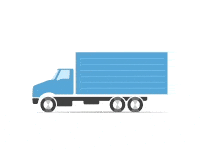Introduction
The freight forwarding system is the backbone of global trade and logistics, but it faces numerous complex challenges that can hinder operational efficiency and service delivery.
1. Capacity Shortages and Fluctuating Freight Rates
Freight forwarding companies often face disruptions due to unexpected market fluctuations, global crises, and high demand surges.
Solutions:
- Utilize predictive analytics and forecasting tools to plan ahead.
- Stay updated with market trends and demand cycles.
- Implement a proactive approach to capacity management.
2. Regulatory Compliance and Customs Clearance
Each country has its own customs regulations and documentation requirements, which can result in delays and clearance issues.
Solutions:
- Stay up to date with international trade regulations.
- Partner with reliable local customs brokers.
- Integrate digital customs compliance tools to streamline documentation.
3. Supply Chain Visibility and Tracking
Limited shipment visibility often causes delays and operational inefficiencies in freight forwarding.
Common Issues:
- Fragmented Systems: Lack of integration between warehouse, shipping, and trucking software results in tracking errors.
- Limited Communication: Insufficient coordination between shippers, carriers, warehouse operators, and customers.
- Unforeseen Disruptions: Natural disasters, port congestion, or labor strikes.
- Inconsistent Tracking Across Modes: Different tracking technologies used in air, sea, and land transport.
- High Customer Expectations: Clients demand real-time updates and fast delivery; even minor delays can erode trust.
Solutions:
- Use end-to-end shipment tracking platforms.
- Ensure data synchronization across all logistics systems.
- Improve stakeholder communication through centralized platforms.
- Use IoT and GPS tracking for real-time visibility.
4. Port Congestion and Delays
Busy schedules and outdated infrastructure at major and minor ports often result in vessel waiting times and logistical bottlenecks.
Solutions:
- Plan shipments to avoid peak port hours.
- Use smart port technology and collaborate with port authorities.
- Diversify port usage based on congestion trends.
5. Risk Management and Cargo Security
Cargo theft, damage, and loss are critical concerns in freight forwarding.
Solutions:
- Employ advanced surveillance and access control at warehouses and transit points.
- Use tamper-proof seals, RFID tags, and real-time monitoring systems.
- Purchase comprehensive cargo insurance for high-value goods.
6. Last-Mile Delivery Challenges
Delivering shipments to the final destination is often delayed by urban traffic, fuel costs, and logistical inefficiencies.
Solutions:
- Use route optimization software and electric vehicles to reduce costs.
- Collaborate with local delivery partners for better reach.
- Implement contactless delivery and real-time delivery tracking.
7. Technology Adoption in Freight Forwarding
Many traditional freight companies are slow to adopt modern technologies, leading to inefficiencies.
Solutions:
- Integrate Transportation Management Systems (TMS), Warehouse Management Systems (WMS), and ERP software.
- Use automation, AI, and machine learning to improve forecasting and operations.
- Digitize paperwork using e-B/L (electronic Bill of Lading) and e-invoicing tools.
8. The Complexity of Supply Chain Management
The supply chain involves multiple stakeholders, including shippers, transporters, factories, and customers. A disruption at any stage affects the entire chain.
Key Problems:
- Supplier reliability issues
- Demand inconsistency
- Poor inventory control
Solutions:
- Use data-driven demand forecasting.
- Work with multiple suppliers to avoid dependency.
- Invest in inventory optimization tools.
9. Economic Challenges
Global economic instability, including inflation and geopolitical conflicts, can lead to reduced shipping demand.
Solutions:
- Optimize operations to reduce costs without compromising service quality.
- Consolidate smaller shipments to reduce expenses.
- Minimize warehousing costs by avoiding long-term storage.
- Focus on customer retention through value-added services.
10. Political Challenges
Freight forwarders must navigate an ever-changing political landscape, including:
- Trade wars
- New regulations
- Tax policy changes
Solutions:
- Stay informed about global economic and political developments.
- Join international trade associations for timely updates.
- Diversify market presence and avoid dependency on a single country or region.
Contact Us
Ready to overcome freight forwarding challenges with a reliable logistics partner?
Get in touch with Turbo Freight FZCO today and let our experts handle your cargo with precision and care.Phone: +971 42952100
Email: info@turbofreight.ae
Website: www.turbofreight.ae
Watch Our Services: YouTube Video


